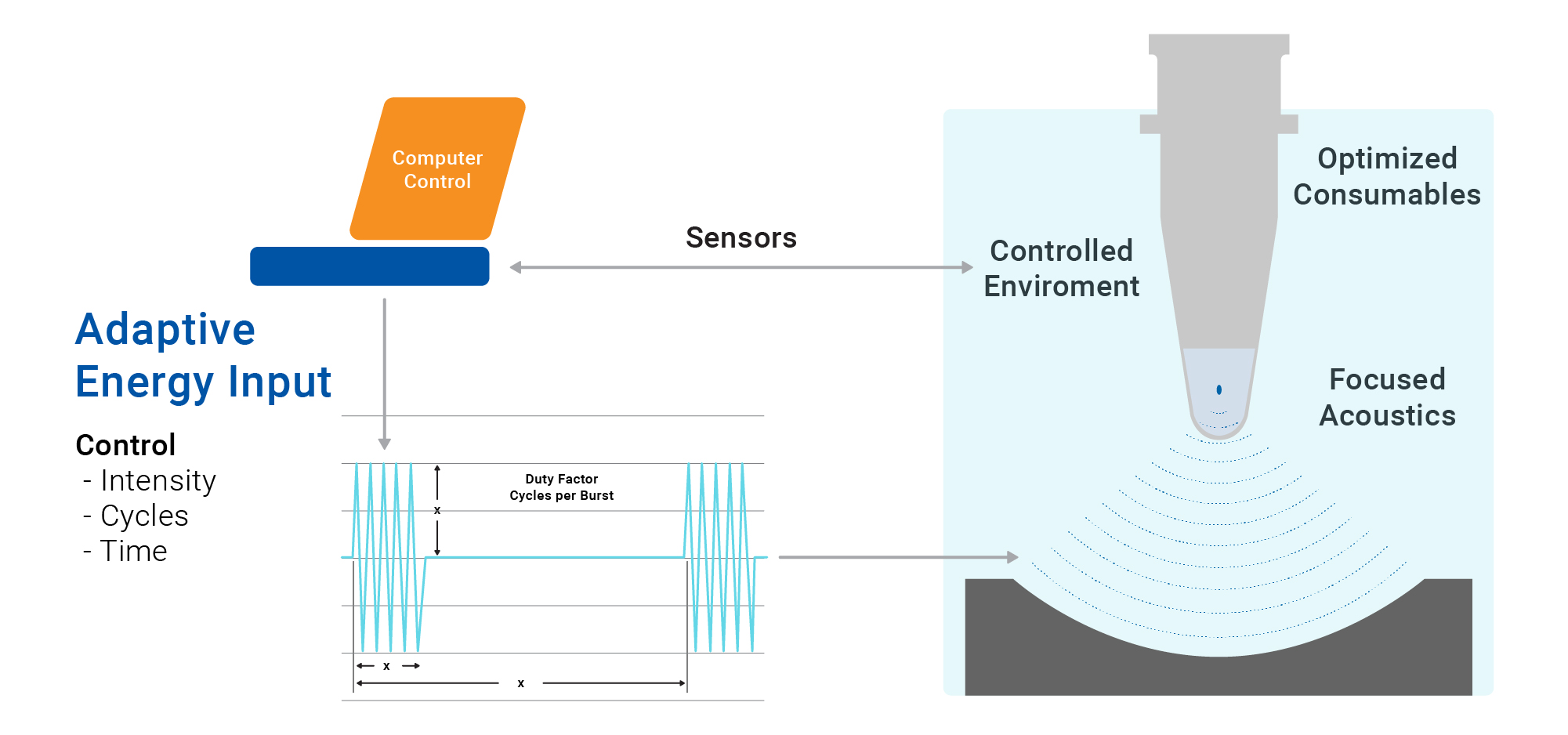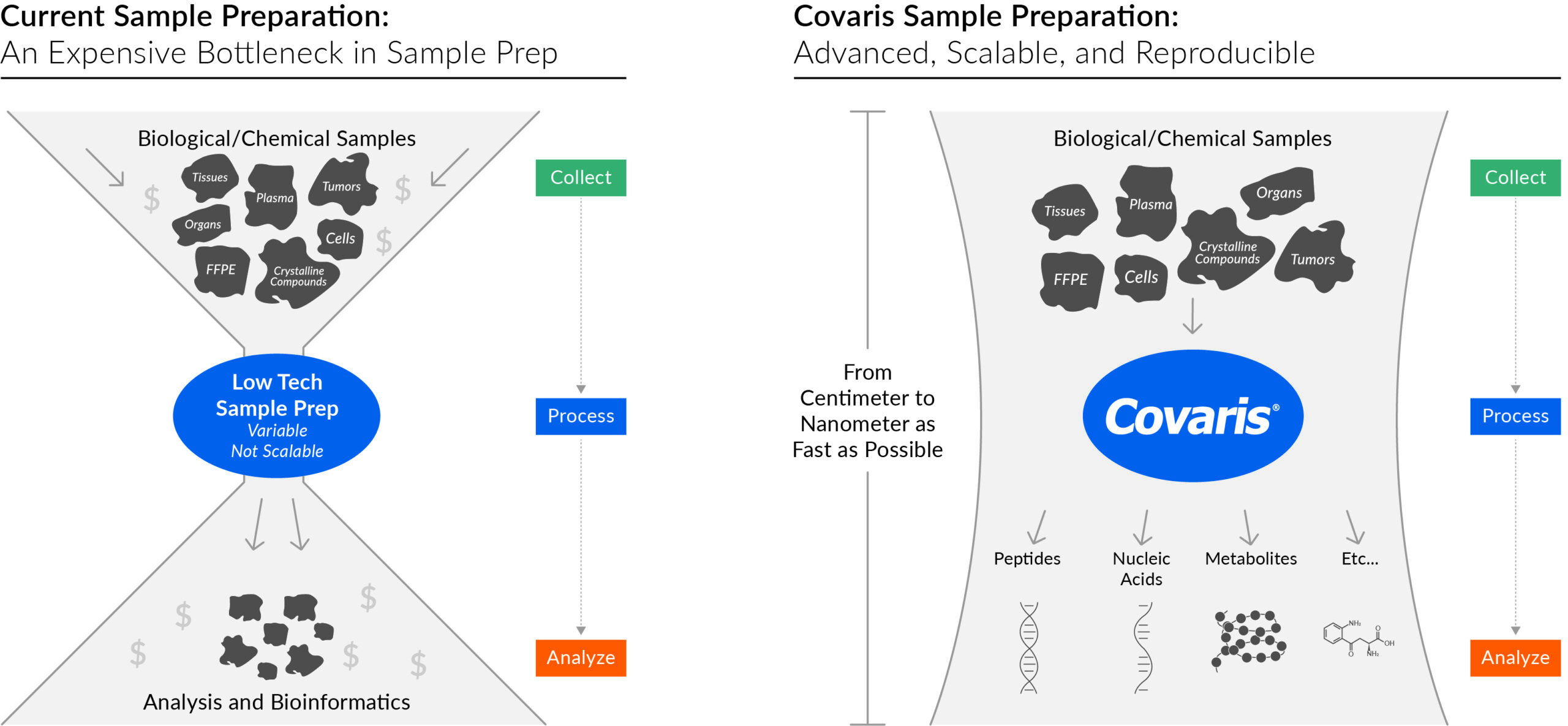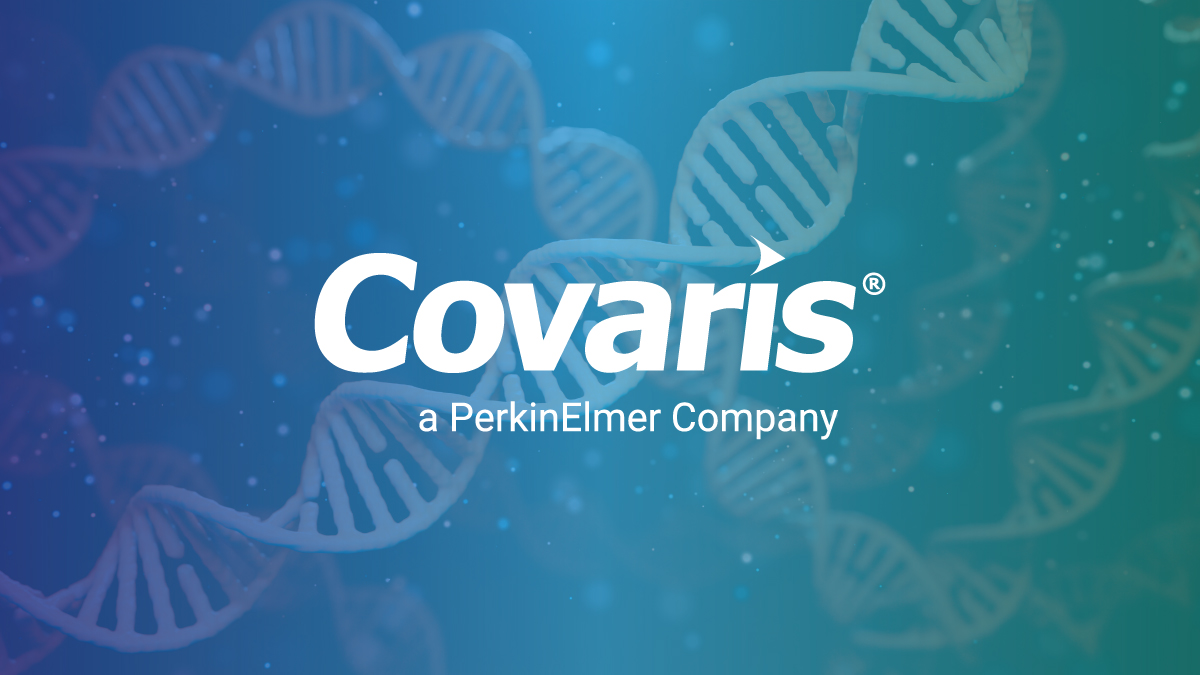Next Gen Sequencing Workflows in Genomics Research: How labs can sidestep the challenges of enzymatic DNA fragmentation by using Adaptive Focused Acoustics®(AFA®) technology
Learn why Covaris’ Adaptive Focused Acoustics (AFA) Technology for Shearing DNA Outperforms Enzymatic Fragmentation in Next Generation Sequencing Workflows. Enzyme-based methods can be unpredictable and biased, while AFA delivers consistent, reliable mechanical shearing across all sample types. The AFA enabled workflow helps Genomic research labs achieve robust, reliable, and reproducible sequencing data.
DNA fragmentation is one of the most important steps in preparing samples for next-generation sequencing (NGS), where fragment size consistency and reproducibility ensures sequence coverage and data accuracy. While enzymatic fragmentation methods are gaining popularity, they can introduce variability and sequence bias that complicate downstream analysis. Covaris’ AFA technology provides a mechanical, controlled approach to fragmentation. By avoiding the pitfalls of enzyme-based methods, AFA helps Genomics research labs produce reliable, high-quality libraries across a wide range of sample types.
The Power of Precision in Fragmentation
DNA fragmentation is a fundamental step in every NGS workflow; however, not all fragmentation methods and approaches deliver the same result quality. Enzymatic fragmentation relies on biochemical reactions that can be sensitive to DNA concentration, temperature, and sequence bias, often resulting in inconsistent fragment sizes and biased sequence coverage.
In contrast, AFA uses acoustic energy to mechanically shear DNA in a highly controlled manner. By generating microscopic cavitation bubbles within a sample, Covaris AFA instruments achieve uniform, random fragmentation—key for optimal NGS library preparation.

How AFA works
Uniformity that Drives Performance
The uniform and unbiased shearing of DNA is essential for confident, reliable sequencing data. Covaris’ AFA delivers highly consistent insert sizes across diverse sample types from whole blood to saliva, cultured cells, from fresh frozen tissues, FFPE samples to amniotic fluid. The consistent fragmentation of DNA generates optimal cluster during sequencing and ensures an even genome coverage. For example, data from Quest Diagnostics showed that AFA-based libraries maintained a uniform size distribution with tight grouping around the target fragmented base pair.
Enzymatic methods, by comparison, often yield libraries with under- and oversized fragments—introducing variability that can undermine workflows like whole-exome sequencing, where enrichment efficiency depends on precise insert sizes.
Reducing Bias, Increasing Confidence
Fragmentation bias is another common challenge in NGS workflows—one that enzymatic fragmentation tends to worsen. AFA’s non-invasive, controlled energy delivered under isothermal conditions ensures random shearing, which in turn helps eliminate sequence-dependent bias, ensuring better and equal representation of all genomic regions. This is especially important in oncology, where underrepresentation of high GC content regions caused by enzymatic bias can affect the detection of critical actionable mutations.
Benchmark studies have shown that AFA delivers consistent gene coverage across whole genome sequences, regardless of GC content. Such efficient DNA shearing offers accurate variant detection and fewer false positives, which is essential in clinical and diagnostic settings.
Supporting Complex and Sensitive Workflows
Beyond reducing bias, AFA can enable several complex and sensitive workflows. Covaris technology has proven valuable in demanding applications, including:
- Addressing complexities of FFPE samples with one workflow approach for active deparaffinization, isolation and purification of DNA and RNA followed by DNA shearing. This is particularly used with Illumina’s TSO500 panel, offering improved RNA quality and uniform sheared DNA for higher report rates.
- Chromatin immunoprecipitation (ChIP), where precise thermal control preserves epitope integrity.
- Methylation sequencing, maintaining the integrity of sensitive methylation markers.
- Circulating tumor DNA (ctDNA) analysis, where reproducible shearing enables high-quality library prep and spike-in controls, providing baseline mutation rates to enable ultra-sensitive mutation detection.

The benefits of using Covaris solutions for sample preparation
Total Workflow Optimization
AFA isn’t just about better fragmentation. By delivering consistent, controlled mechanical shearing, AFA simplifies the entire library preparation process, from nucleic acid extraction to sequencing. Labs can improve sample quality, reduce variability, and streamline workflows for reliable and confident results.
With the launch of the truCOVER® Whole Genome Sequencing PCR-Free Library Prep Kit, Covaris is expanding its support even further, offering a complete, high-performance option that goes beyond shearing to help labs produce exceptional libraries with less bias, better coverage resulting in accurate confident data.

